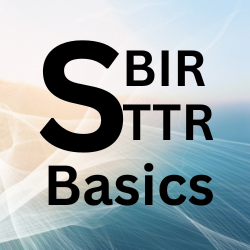You must follow strict rules if your business receives funding through SBIR or STTR. Compliance is required from Day One! These programs offer great opportunities, but noncompliance can cost you future funding and even require you to pay money back.
If you’ve missed the mark, don’t panic. You can fix it. Start by building a strong compliance program and updating your accounting system to meet federal standards.
1. Review Where You Stand
Start with a full review of your current setup. Check how you track time, manage project costs, handle reports, and keep records. Look for gaps in:
- Timekeeping and labor tracking
- Cost classification (direct, indirect, and unallowable)
- Audit readiness
- Contract and subcontractor oversight
Hire a compliance consultant if needed. Getting expert help now can save you from costly problems later.
2. Build a Simple, Clear Compliance Program
Create a written plan that explains how your company will meet SBIR/STTR rules. Your compliance program should include:
- Cost tracking and approval steps
- Timekeeping and payroll policies
- Rules for working with vendors or subcontractors
- Employee training plans
- Audit and reporting procedures
Please keep it simple and clear. Make sure your team understands what’s expected and follows through.
3. Set Up a Compliant Accounting System
Your accounting system must meet Federal Acquisition Regulation (FAR) standards. If it doesn’t, you risk losing funding or failing an audit.
Your system should:
- Track costs by project and funding phase
- Separate direct, indirect, fringe, and unallowable costs
- Record labor by employee, project, and hours worked
- Keep a clear audit trail
- Help you calculate and apply indirect rates
Popular options include QuickBooks with DCAA add-ons, Unanet, or Deltek Costpoint. Pick a system that fits your business now and can grow with you.
4. Train Your Team
A system only works when people use it correctly. Train your staff on:
- Timekeeping and logging hours daily
- Proper use of project codes and cost categories
- Rules about allowable and unallowable costs
- Documenting expenses correctly
- How to follow your internal policies
Document all training. Keep a record in case of an audit.
5. Check for Mistakes Often
Don’t wait for an audit to find problems. Review your records every month or quarter. Look at:
- Timesheets
- Cost reports
- Invoices and billing
- Subcontractor performance
It is important that minor issues don’t become big ones. Whenever you find a compliance issue, fix it! Regular reviews help you stay ready for audits and protect your funding.
6. Bring in Compliance Experts When Needed
If you are new to government contracts, seek outside help. Hire a CPA or compliance expert who understands SBIR/STTR requirements.
This support is an investment, not a cost. It keeps you on track and reduces the risk of losing money or future awards.
7. Keep Good Records
Auditors want proof. Keep records of:
- Timesheets and labor cost reports
- Invoices, receipts, and expenses
- Subcontractor contracts and deliverables
- All employee training
- Internal audits and review notes
Store everything in one place, either a digital file system or a compliance binder. Easy access to documents makes audits smooth and stress-free.
Final Thoughts: Compliance Protects Your Business
Compliance is more than a checklist. It protects your funding, supports your growth, and builds trust with government agencies.
If your business hasn’t been compliant, act now. Set up the right systems, train your team, and review your progress often. Doing it right puts you in a strong position for future SBIR/STTR funding and beyond.

